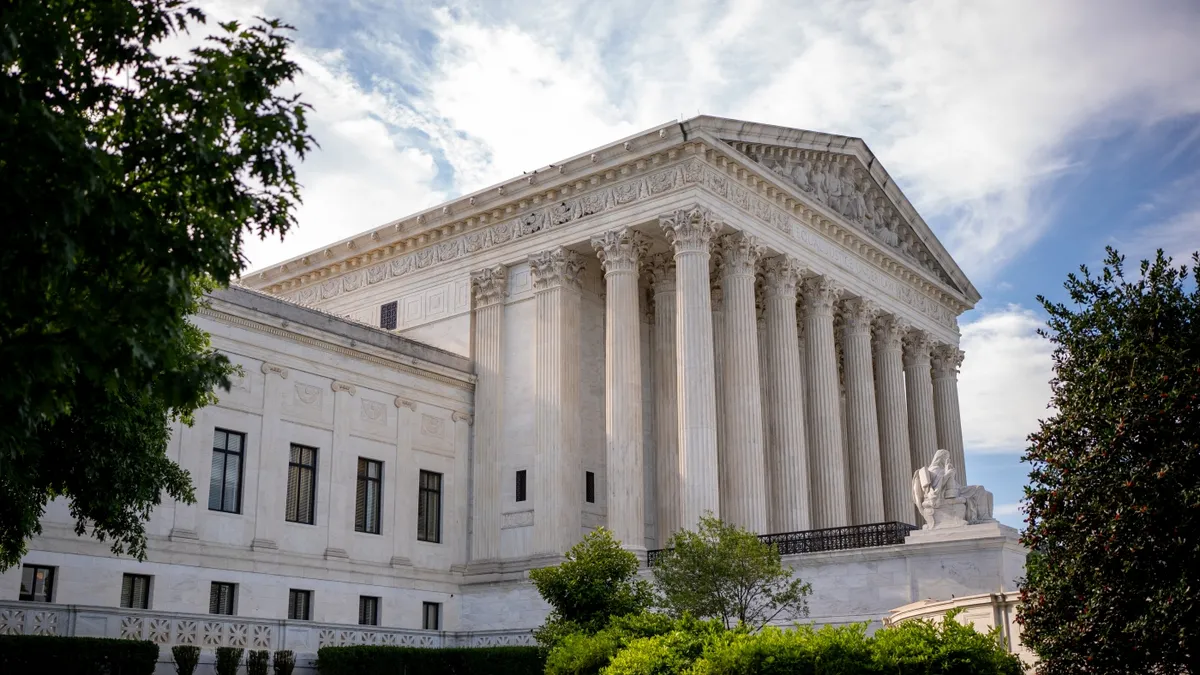
A unanimous decision from the Supreme Court has paved the way for families affected by wrong-house raids to pursue legal action against law enforcement. This landmark ruling addresses a critical issue where local, state, or federal officers mistakenly invade private residences in search of suspects, leading to significant distress and violations of rights for innocent residents.
The case at the heart of this ruling involves Trina Martin, her 7-year-old son Gabe, and her partner Toi Cliatt, who experienced a harrowing incident in their Atlanta home in 2017. During this wrong-house raid, FBI and SWAT agents stormed their residence while executing an arrest warrant for a neighbor suspected of gang-related activities. This traumatic experience prompted the family to take legal action against the FBI and the individual agents involved in the raid.
In 2019, Martin and Cliatt filed a lawsuit against the FBI, but pursuing legal recourse in such cases is notoriously challenging, particularly in federal court. The federal government is generally protected by sovereign immunity, which restricts the ability of individuals to sue unless specific circumstances, as defined by Congress, apply. This case brought to light the question of whether the circumstances surrounding the wrong-house raid permit the victims to seek compensation.
Typically, the U.S. government enjoys the benefits of sovereign immunity, shielding it from lawsuits. However, in 1946, Congress enacted the Federal Tort Claims Act, allowing individuals to file lawsuits against the federal government for harm caused by its employees. This statute was amended in 1974, partly in response to notorious wrong-house raids conducted by the FBI, raising the question of whether the amended statute permits victims to sue without restrictions.
The crux of the Supreme Court's deliberation centered on whether victims of wrong-house raids could sue the government regardless of the circumstances. The government's argument contended that the FBI agents were directed to raid the right address and should not be held liable for the misjudgment in this high-pressure situation. They maintained that imposing liability on the government for every error made by federal officers would hinder law enforcement's efficacy in carrying out their duties.
In contrast, Martin and Cliatt argued that the specifics of the officers' mistake should not exempt the government from accountability. They emphasized that Congress intended for the federal government to be held responsible in instances like theirs when it amended the statute in 1974. Their position highlighted the need for justice and accountability in cases of severe violations of privacy and safety.
The Supreme Court, traditionally leaning towards protecting law enforcement in such cases, took a different stance this time. With a 6-3 conservative majority, the court has previously dismissed numerous claims against law enforcement officers, which has made it increasingly difficult for victims to seek justice. However, in this case, Justice Neil Gorsuch authored the opinion for the unanimous court, marking a significant shift in judicial perspective regarding wrong-house raids.
This ruling not only opens the door for the Martin family to seek justice but also sets a precedent for future cases involving wrong-house raids, reinforcing the principle that law enforcement must be held accountable for their actions, especially when innocent individuals are affected.